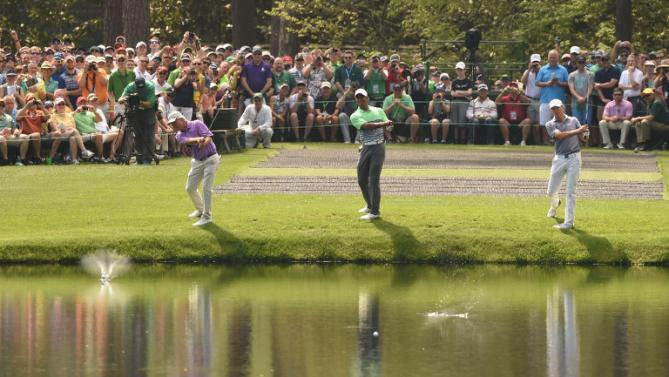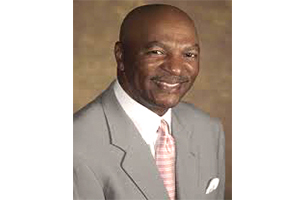(By Pete McDaniel) Transcendent sports heroes are reluctant to pass the torch. Like a boa constrictor, they employ a death grip on greatness even when it’s obvious to all but their most faithful followers that the flame is a mere flicker.
Michael Jordan refused to defer to Kobe Bryant, lacing them up until his vertical leap resembled the fat-celled-challenged left-handed golfer’s pitiful attempt at hops for joy upon winning his first Masters. Sorry, Phil, I couldn’t resist.
Bryant refuses to abdicate to Lebron James, preferring instead to post up Father Time in a game of one-on-one he has no chance of winning. You’d think he would have learned from his predecessor.
Although it’s impossible to compare independent contractors strolling the lush fairways of the PGA Tour to team-oriented hoopsters, golf also has a history of graying (and hair follically challenged) superheroes on the back nine of their illustrious careers refusing to give way to a burgeoning youth movement. This most recent Masters shone a spotlight on the growing disparity between the glorious past and the promising future.
In the aftermath of Jordan Spieth’s masterful performance in Augusta on the heels of Rory McIlroy’s sweet run in 2014, the Tour should change its mantra from “These Guys Are Good’’ to “The Future Is Now.’’
The proof is in the pudding. Or in this case the leaderboard at major championships with 20somethings supplanting the “name’’ players we’re used to seeing on top.
Call it prescience or forewarning or happenstance, but I arrived at the Masters this past Wednesday with low expectations. My man hadn’t played in nine weeks and when last we saw him his short game resembled that of a 20-handicapper. If he didn’t have the chipping yips he had a reasonable facsimile of them. There was a very real possibility TW would embarrass himself on the grandest stage of them all.

(L-R) US players Ben Crenshaw, Tiger Woods and Jordan Spieth skip balls on the water at the 16th hole during a practice round for he 79th Masters Golf Tournament at Augusta National Golf Club on
April 8, 2015, in Augusta, Georgia. (AFP Photo/Timothy A. Clary)
After the Golf Writers of America Association meeting, I thought I’d walk the course and check out whatever tweaks were made. That’s when I happened to notice the practice round pairings, in particular the one featuring Tiger Woods, Ben Crenshaw and Jordan Spieth.
Out of sheer curiosity I accurately projected that because they began on No. 10 I could catch up with them somewhere around the 13th hole. That’s if I speed-walked from the media center. Why speed-walk? Because of the many restrictions placed upon patrons at the Masters, running is right up there with cell phone usage on tournament days. Get caught breaking the speed limit and the green jackets are obliged to unceremoniously remind you where you are—or aren’t.
I caught up with them on No. 15. Both Spieth and Tiger knocked it on the par-5 in two while Gentle Ben, playing in his final Masters, wedged it from the layup position. The irony of an aging, two-time champion transitioning to ceremonial status playing alongside golf’s present and future was more than palpable.
Crenshaw knew it was time to say goodbye. Many have to be shown the door. In fact, before the green jackets rescinded the lifetime invitation to past champions several septuagenarians were known to tee it up in the Masters much to the chagrin of older scribes who scoffed at the tradition.
As the tournament progressed with young Spieth taking command in the first round and marching like Sherman through the Georgia pines, I couldn’t help but think about a young Tiger doing the same 18 years ago. He was the true heir apparent to the Golden Bear, who had no choice but to pass the torch to the phenom from Cypress, Ca.
Related story: A History of the Masters: Read Before You Go….
Etched into my memory is the image of Jack Nicklaus sitting on the 18th tee box during the 2000 U.S. Open at Pebble Beach as Tiger rewrote the record book. It was the end of one era and the meteoric rise of another. The Golden Bear began his hibernation from the U.S. Open immediately after completion of that round.
On Sunday, Tiger, just like Jack at Pebble, was a mere bit player in a one-man show sans drama except for a Phil Mickelson mini-charge that fell woefully short. Lefty should be commended for the effort if not the result. Predictably, Tiger didn’t have enough firepower to make it interesting during the final round. To his credit, he showed the world he can still perform at the highest level, albeit in a supporting role.
I would never say that Tiger has won his last major. In fact, I believe he will win another one. However, I will say it has become increasingly more difficult thanks to the youth movement.
I don’t know whether Spieth is ready to challenge McIlroy for golf’s throne. I do know that Tiger isn’t ready to give in to the vagaries of injury or the inevitability of beauty over age. Not until he stares out over the competitive landscape similar to the way Jack seemed to survey Carmel Bay and sees himself slipping into the land of the forgotten.
Even then they’ll probably have to pry the torch from his grip.
Pete McDaniel is a veteran golf writer and best-selling author.
Contact him at Email
His blogs and books are available at petemcdaniel.com



